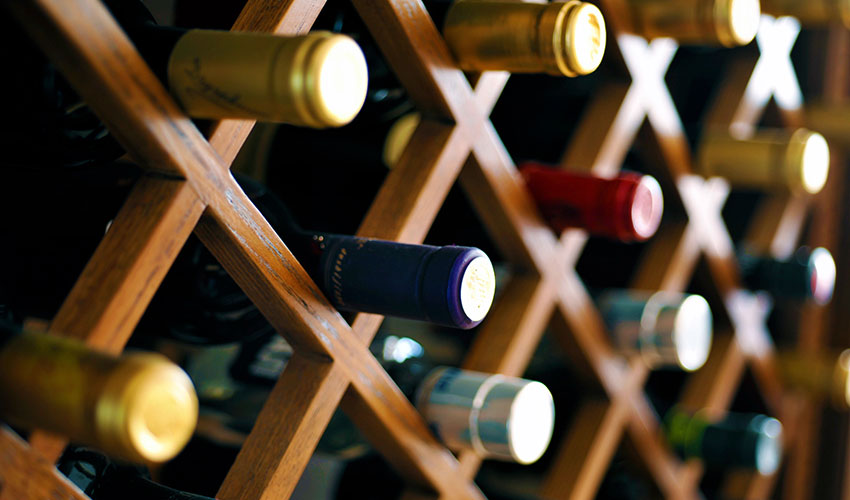5 things that can go wrong when cellaring wine and how to prevent them

Wine is an organic asset with a limited lifespan and a peak drinking window. It is complex, fragile, and sensitive to many things that can affect its taste and value. Whether you own one bottle of wine or over a thousand, make sure you understand what can go wrong with your wine—and what you can do to help protect it.
-
Temperature
Wine’s number one enemy is heat, making it age faster and develop irreversible stewed aromas. When this happens, it is referred to as “cooked” wine. Heat can also cause wine to expand in volume, increasing pressure on the cork, which can compromise the seal and lead to seepage and bacterial contamination. While not as bad as heat, cold temperatures can also damage wine; wine cellared in too cool of temperatures will stop the process of aging or cause it to freeze and expand, putting pressure on the cork.
What to do? Store your wine at a constant temperature of approximately 12°C. Install 24/7 remote monitoring sensor technology to alert you to temperature fluctuations. -
Humidity
Corks of wine bottles cellared at too low of humidity over time or in peaks, will dry out and crack which leads to oxidation of the wine. Cellars that are too humid are susceptible to mould.
What to do? Monitor humidity to ensure it is within range of 60% (+/- 10%) relative humidity. Monitor the humidity of your cellar using sensor technology that will alert you to fluctuations. If you’re concerned about humidity fluctuations, you can install either a humidifier or a dehumidifier.

-
Light
While darker colours of bottle glass offer some protection, wine shouldn’t be exposed to excessive amounts of light as blue and ultraviolet rays can break down the complex molecules that contribute to a wine’s desirable flavours. Exposures to blue and ultraviolet light cause flavours of overcooked cabbage, damp cardboard, and sewage, and is known as Light Strike.
What to do? Keep your cellar dark. Avoid natural light exposure with UV resistive glass and use incandescent bulbs instead of fluorescent lights, because they emit smaller amounts of UV waves. You should also have the lights set on a timer or motion sensor.

-
Air Quality / Ventilation
Because wine breathes through the cork, letting oxygen in over time, it is important that the air in your wine cellar be clean. Otherwise, you risk altering the flavour and bouquet of your wine. Some odorous molecules are benign, while others, like chemical compounds in fresh paint and cleaning supplies, are more harmful. Aromatic food products, like garlic, can also seep into your wine.
What to do? Avoid stains and finishes that have Volatile Organic Compounds (VOCs). Food products and cleaning supplies should remain outside the cellar.
-
Vibration
As wine matures, sediment is formed when the solids in the wine (typically tannins) fall to the bottom of the bottle. Excessive vibrations cause chemical reactions in aging bottles of fine wine that alters organic acids and tannins while dulling flavour.
What to do? Avoid moving and handling bottles unnecessarily. Although it may be hard to eliminate vibrations totally, especially in a city environment, it is best to store your wines away from household appliances or stairwells and areas with renovations.
No part of this article may be reproduced in any written, electronic, recording, or printed form without written permission of Chubb.
Disclaimer - The content of the above article is not intended to constitute professional advice. Although all content is believed to be accurate, Chubb Insurance Singapore Limited (Chubb) makes no warranty or guarantee about the accuracy, completeness, or adequacy of the content of this article. Users relying on any content do so at their own risk.

Protect your home and valuables
Get a quote online or leave your contact details and our representatives will get in touch with you.